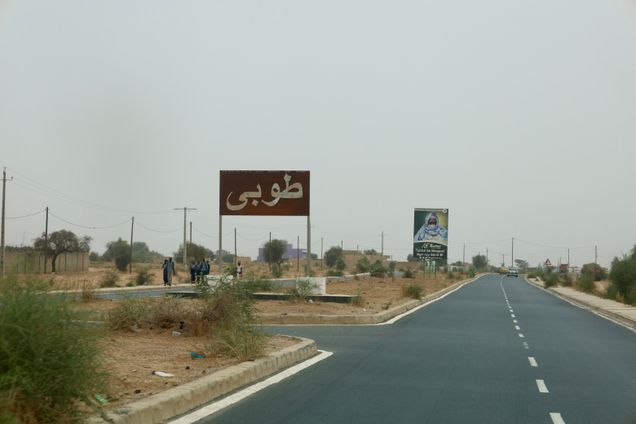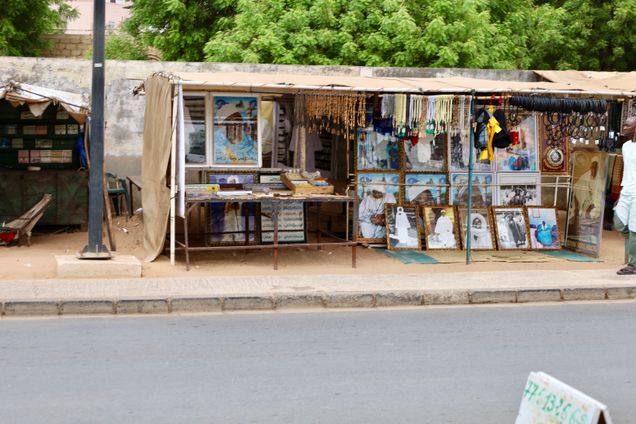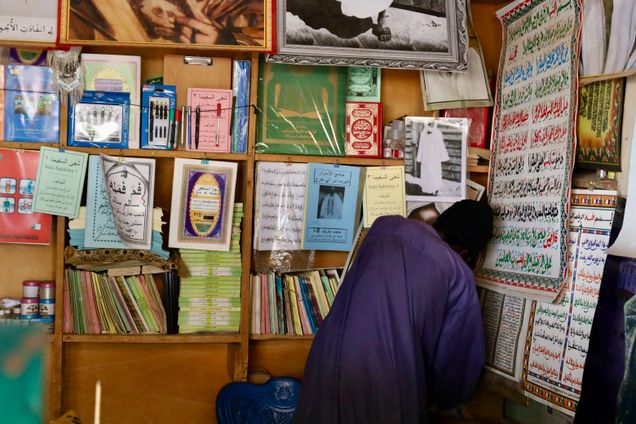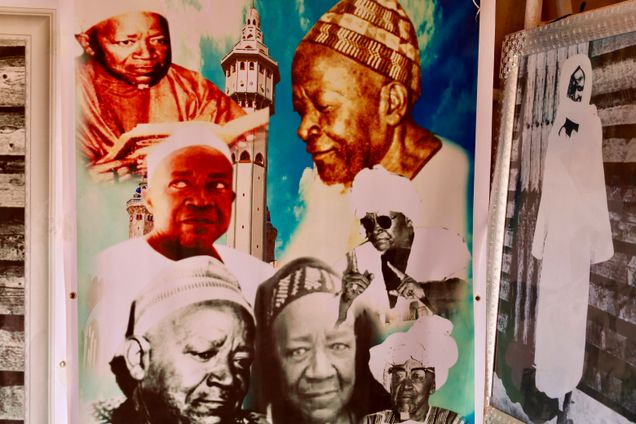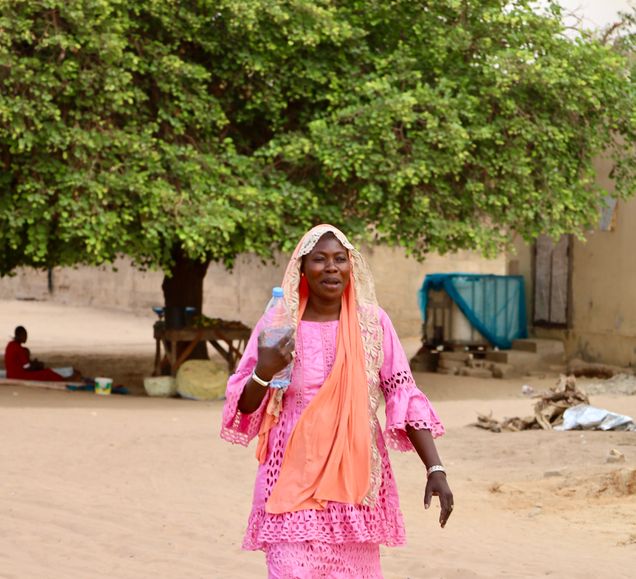Unit 4: Fallou Kane

Metadata
| Title | Conversation with Fallou Kane |
| Interviewer | Fallou Ngom |
| Subject | Education, Ajami literacy, poetry, travel and work experience |
| Content | Fallou Kane (Fàllu Kan in the standard Wolof Latin script spelling) was born in 1981 in Mbacké in the region of Diourbel, Senegal. He started his Quranic studies at the school of Serigne Mourtalla Mbacké in Touba. Later, he attended the Al-Azhar school in Touba where he learned Arabic, before enrolling in Serigne Cheikh Ly’s school in Mbacké to continue his education. He also spent a few years at the school of Serigne Khalil Mourtalla Mbacké, his teacher and spiritual leader in Touba-HLM. Fallou Kane was trained as a mason. After obtaining his masonry certificate, he spent three years in Mauritania working in the construction business. He also spent three years in Dakar, Senegal, working as a street vendor. Mr. Kane has also worked as a professional photographer. He is now a Wolof Ajami poetry singer and writer, and takes part in annual Wolof Ajami poetry competitions, which gather the best young Wolof Ajami poets in the country. In this conversation with Fallou Ngom, Mr. Kane discusses his work, reflects on how he became an Ajami poet, and talks about literary innovations that his generation is making in Wolof Ajami poetry. |
| Language | Wolof |
| Script | Wolof Ajami (locally called Wolofal) |
| Location | Touba, Senegal |
| Pedagogical content/application | Includes relevant linguistic, stylistic and cultural skills as identified in our assessment guidebook/ ACTFL guidelines |
| Access condition and copyright | These materials are subject to copyright and are distributed under the terms of the Creative Commons Attribution-NonCommercial 4.0 License, which permits non-commercial use, distribution, and reproduction in any medium, provided the original author and source are credited. For use, distribution or reproduction beyond these terms, contact Professor Fallou Ngom (fngom@bu.edu). |
| Contributors | Fallou Ngom, Ablaye Diakite, Daivi Rodima-Taylor, Elhadji Djibril Diagne, Gana Ndiayie, Alison Parker, and Frank Antonelli. |
| Required citation information | Fallou Ngom (PI), Ablaye Diakite, Daivi Rodima-Taylor, Elhadji Djibril Diagne, and other contributors. 2023. “Conversation with Fallou Kane.” https://sites.bu.edu/ria/wolof/wolof-unit-4/ |
Videos
Wolof with English Subtitles
Wolof with Latin Script Subtitles
Community Images
(click on the image for a larger view)
Pedagogical Activities
Glossary
- Àddu: To reply, answer, respond
- Ambulant: From French marchand ambulant, street vendor
- Baj-baji: To shake, tremble
- Bayaan b-: From Arabic bayān, statement, exposition, eloquence
- Bitim réew: Overseas
- Caq b-: Pearl necklace
- Daamar j-: Car, synonym of wata or oto from French (voiture and automobile).
- Daara bu kawe b-: Institution of higher learning, a synonym of inwersite from French université (university)
- Dajale: To collect, gather, bring together, assemble
- Fàtte: To forget
- Fëgg-jaay b-: It literally means to “shake and sell,” secondhand clothes, thrift shop
- Gëm-gëm or ngëm-ngëm g-: Set of beliefs, mindset, mentality, conviction
- Kolobaan or Colobane: A neighborhood in Dakar with one of the largest flea markets
- Lang: To dwell in a place longer than planned, be stuck
- Lor: To harm, hurt
- Mantiq: From Arabic, logic
- Maxtume m-: Small satchel/purse worn around the neck in Wolof society
- Mayug Yàlla: A gift from God
- Mokkal: To master, know something by heart, memorize
- Mucc: To be saved from danger, be unharmed
- Naar: Moor, Arab, white Mauritanian
- Ñukk: Name of a poetic genre invented by young Murid Ajami poets
- Nuwaaksot or Nouakchott: Capital of the Islamic Republic of Mauritania
- Soññ: To encourage, urge, enjoin
- Soqikoo: To come from, originate from, stem from
- Takk: To marry a wife, tie the knot, or to wear jewelry. Not to be confused with tàkk, to catch fire, burn, start an engine
- Tette or teete: To lead children in their first steps, initiate, guide, lead
- Teyaatar b-: From French théâtre, theater, sketch
- UCAB: Université Cheikh Ahamdou Bamba (Shaykh Ahmadu Bamba University) in Touba, Senegal
- Woy or way: To sing. When used as a noun (woy w-), means song
- Wurus w-: Gold
- Xasida b-: From Arabic qaṣida, poem. Plural: xasaayid
Notes
- Al-azhar or Al Azhar: Named after Al-Azhar University in Cairo, Al Azhar is one of the largest private Islamic school systems in Senegal. It was founded by Sëriñ Murtalaa Mbàkke or Serigne Moutada Mbacké (1927-2004), the youngest son of Shaykh Ahmadu Bamba (1853-1927), the founder of the Muridiyya Sufi order.
- Génn àdduna: To leave this world, pass away. A Wolof expression rooted in the Muslim belief that life on earth is fleeting and that human beings are only here as visitors with a mission to be righteous and serve God. True life is believed to be in the hereafter. Similarly, gane àdduna (to visit this world) is used to mean to be born. Nelaw (to sleep), làqu (to hide) and wàcc liggéey (to finish work) are euphemisms for dying.
- Jannatul Mahwaa: A neighborhood in Tuubaa named after Jannat al-Maʾwā, the Arabic name for one of the eight levels of paradise in Islam.
- Njuuj-njaaj: Trickster, a poetic genre and the title of a poem by Sëriñ Muusaa Ka or Serigne Moussa Ka (1889-1967), the most prolific and famous Wolof Ajami poet and a follower of Shaykh Ahmadu Bamba.
- Sëriñ Mbay Jaxate: Also spelled as Serigne Mbaye Jaxate (ca 1876-1947), a famous Wolof Ajami poet, moralist, and satirist, and a follower of Shaykh Ahmadu Bamba.
Exercises:
Comprehension || Writing || Listening / Speaking and Conversation || Cultural Competence
Comprehension: Video
Comprehension: Image
Writing
Listening / Speaking and Conversation
Sottante Xalaat:
- Waxtaan leen ci fànn wii: Ndax jàng mbindum Wolofal ak taalif lu yomb la ak lutax?
- Sottante leen xalaat ci njariñu Wolofal: Lan moo di njariñu Wolofal, ci seen xalaat?
Cultural Competence
- Deferal ab teyaatar ci Wolof buy wone ab aada bu am solo boo jukkee ci widewoo bi.



